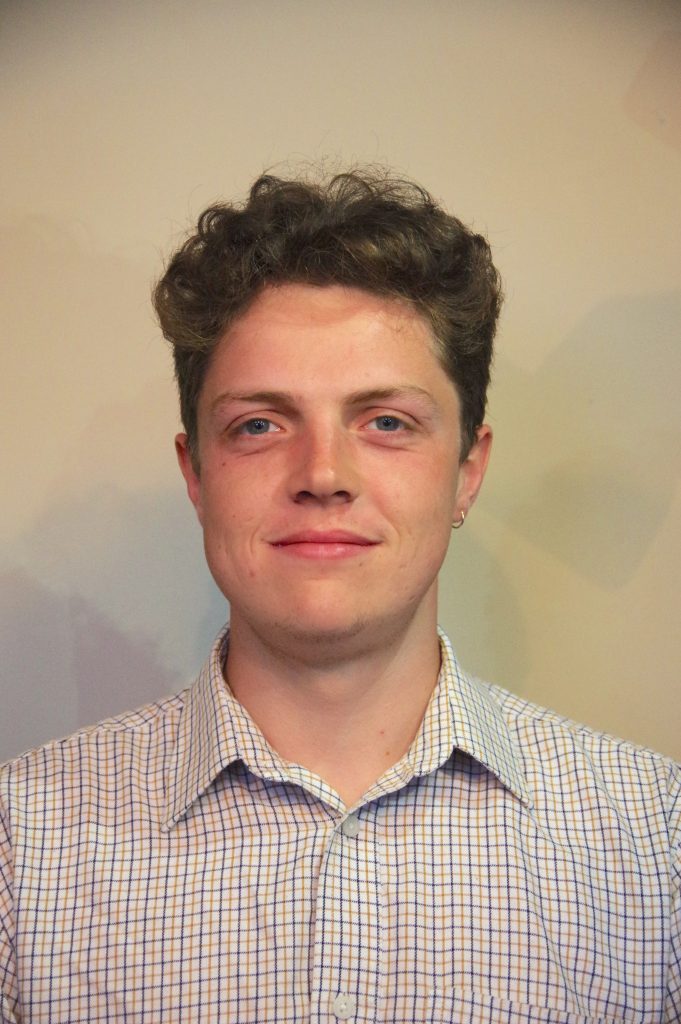From its inception, the Scottish Privy Council Project was always intended, in part, as a vehicle for fostering the next generation of historians. To that end, we set out to recruit two PhD students, one based at each of the partner institutions (University of Stirling and University of Dundee). After a competitive selection process, we were privileged to welcome two wonderful scholars: Susanne Weston and Robbie Tree. Over the next three or four years, Susanne and Robbie will work on projects rooted in the Scottish Privy Council records (1691-1708), between them making a hugely significant contribution to our understanding of this formative, but little-understood period in Scottish History.
To launch the project’s brand-new blog and website, we’ve invited Susanne and Robbie to tell us a little bit about themselves and what they hope to achieve during their PhDs.

Susanne Weston, University of Dundee
Based at the University of Dundee, Susanne Weston’s PhD will be focused on the economic and social aspects of the Privy Council business. She is supervised by our Co-Investigator, Dr Alan MacDonald, and our project manager, Dr Allan Kennedy.
In 2015 I returned to education as a mature student and completed the Scottish Wider Access Programme (SWAP) at college. I then graduated from the University of Glasgow with a MA in History and Celtic Studies and an MSc in History. My interests lie broadly in all aspects of Scottish society and popular culture from around 1600-1850, particularly the Highlands and Islands. I am interested in a wide variety of topics within this timeframe including ethos and identity, popular engagement in Scottish Covenanting tradition/Jacobite risings and relations with the Church, crown, and government. My research projects to date have centred firstly on the effect of the Jacobite rising in 1745/6 on Gaelic youth, and more recently, on recovering the famine narratives of the indigenous population of the West Highlands and Islands during the Highland famine years from 1846-1856.
The Scottish Privy Council Project is a challenging and exciting opportunity to be involved in researching one of the most invaluable, revelatory primary sources of the early modern period. My focus will be on analysing how the Privy Council manuscripts can elucidate our understanding of the post-revolution period in Scotland, and in conjunction with additional sources, identify areas of continuity and change with special emphasis on society and economy.

Robbie Tree, University of Stirling
Robbie Tree is based at the University of Stirling. His PhD project deals with the religious and political sides of the Privy Council’s business. He is supervised by our Principal Investigator, Dr Alastair Mann, and our Project Manager, Dr Allan Kennedy.
My name is Robbie Tree and I am originally from Muckhart in Clackmannanshire. I gained both my undergraduate degree in History & Politics and my MSc in Scottish History from the University of Glasgow. My main interests in history so far have been the political and religious implications of the seventeenth century Covenants in Scotland. My Masters’ thesis looked into political allegiances in Stirling during the tumultuous Covenanting years and I have presented work on the United Societies – a radical Presbyterian group – in the 1680s. Since my undergraduate degree I have also been fascinated by the system of serfdom under which coal and salt miners lived and worked in Scotland from 1606-1799.
Having been offered this fantastic opportunity as part of the Scottish Privy Council Project, my main focus will be on political and religious management from 1689-1708. Given the council’s role as the everyday governor of the country, its position as an intermediary between other local and national institutions, the ways in which it represented and responded to the Scottish political nation, and its independence from the crown will be studied in detail. This will raise questions over the absolutist versus constitutional monarchy, the development of a religiously pluralistic state, and the somewhat ambiguous remit of the under-studied privy council. More broadly, I aim to gain fresh insights into early modern governance and state formation.
